The congress in this first edition covers the applications and perspectives on the Circular Economy and Industry 4.0 applied to the following contexts:
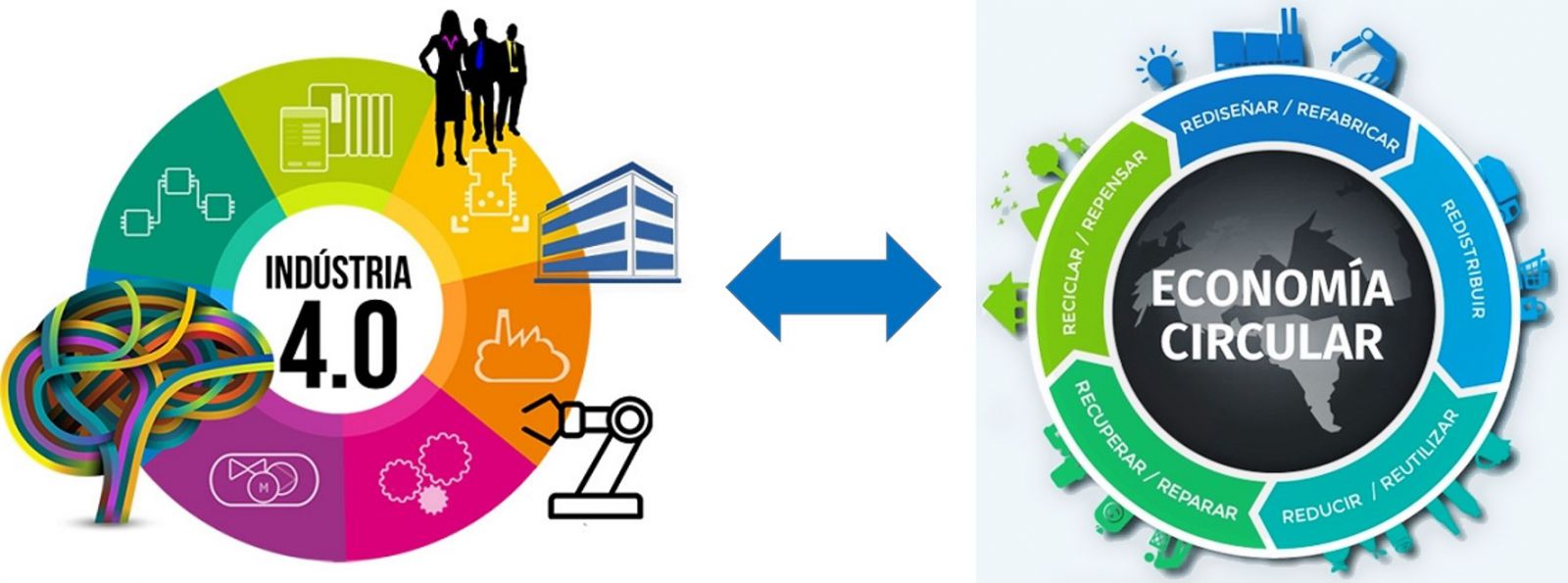
Faculty of Industrial Engineering
CIIA - International Conference of Applied Industrial Engineering
The congress in this first edition covers the applications and perspectives on the Circular Economy and Industry 4.0 applied to the following contexts:

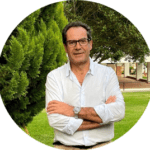
Ph.D. in Computer Science and Full Professor of Computer Languages and Systems in the Department of Computer Science at the University of Jaén, where he has been teaching since 1991. He is the director of the Center for Advanced Studies in Information and Communication Technologies (CEATIC), a research institute at the University of Jaén. He is also a member of the Governing Board of the Confederation of Scientific Societies of Spain (COSCE). Since its inception, he has led the SINAI research group (Intelligent Information Access Systems). His research focuses on natural language processing (Human Language Technologies), specifically opinion and sentiment analysis, information retrieval, question answering, text classification, dialogue systems, and multilingual and multimodal information access.

Ph.D. in Engineering Sciences from the Monterrey Institute of Technology and Higher Education and the University of Tennessee Knoxville, specializing in Industrial Engineering and Statistics. He is currently a research professor at the University of Azuay, where he works in areas such as experimental design, lean manufacturing, transportation and routing optimization, inventory management, and workplace and facility design. His research focuses on lean manufacturing and the analysis and design of experiments, collaborating with the University of Tennessee. His scientific output includes articles in indexed journals and book chapters on supply chain optimization, applied artificial intelligence, and statistical methods for improving industrial and food processing.

Ph.D. in Mathematics from Moldova State University. He is a professor at the University of New Mexico, USA, and a prolific researcher in multiple disciplines, including mathematics, logic, physics, and literature. He is the creator of Neutrosophic Logic and Neutrosophic Set Theory, with applications in artificial intelligence, engineering, and social sciences. He has published over 100 books and numerous scientific articles in high-impact journals.
Intelligent Connectivity encompasses the use of 5G networks, Internet of Things (IoT), edge computing, and blockchain to create a connected industrial ecosystem where systems and devices exchange data in real time. This improves decision-making, optimizes supply chains, and ensures greater traceability and data security. Intelligent connectivity allows for more precise control of production processes, more efficient logistics, and robust protection against cyber threats, ensuring that the industry can operate safely and nimbly.
Sustainable Production involves integrating production models that minimize environmental impact through efficient resource use and the adoption of eco-friendly practices. This includes the circular economy, which promotes material reuse and waste reduction, and the use of renewable energies to reduce dependence on fossil fuels. Sustainability also implies a commitment to energy efficiency, lowering the carbon footprint, and promoting cleaner, more responsible manufacturing processes.
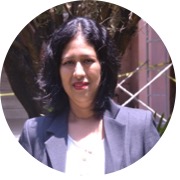
She is a Computer Systems Engineer from the University of Guayaquil, has a MSc in Computational Informatics from the same university and other MSc in Telecommunications from the Universidad Católica de Santiago de Guayaquil. Currently is Teacher, Knowledge Manager, Research Support Manager and Curricular Support Manager at the Faculty of Industrial Engineering of the University of Guayaquil.
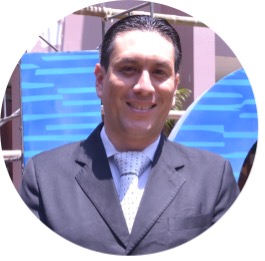
He is an Industrial Engineer graduated from the Escuela Superior Politécnica del Litoral, with a Master’s degree in Renewable Energies from the University of Zaragoza and a Master’s degree in Energy Systems Planning from the State University of Campinas, where he concluded his Doctoral studies. He has experience in energy efficiency projects, energy planning, bioeconomy and waste utilization; working mainly developing input-output models, general equilibrium models and LEAP model.
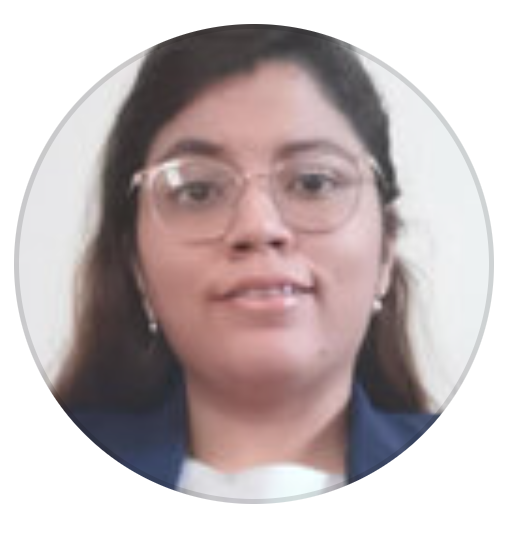
She has a degree in Electronics and Telecommunications Engineering, with extensive learning capacity in infrastructure, mobile communications, networking or the development of technological projects. She has a master’s degree in technology, systems and communications networks, and a PhD in telecommunications both from Universitat Politécnica de Valéncia (UPV).

Engineer in Statistics and Computer Science from the Escuela Superior Politécnica del Litoral-Ecuador, she has a Master’s degree in advanced multivariate data analysis and Big Data from the University of Salamanca-Spain, she is currently pursuing a PhD in Applied Multivariate Statistics at the University of Salamanca-Spain. She is a research professor at the University of Guayaquil-Ecuador. Her research focuses on data analysis, employing Machine learning and Artificial Intelligence techniques.
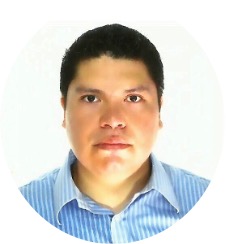 Researcher with expertise in Electronic Engineering and Computer Science. He earned his Ph.D. in Telecommunications from Universitat Politècnica de València, Spain. Currently a postdoctoral research associate at North Carolina State University, USA, he also serves as an Associate Professor at the National University of Chimborazo, Ecuador, and a Graduate Professor at Escuela Superior Politécnica del Litoral, Ecuador.
Researcher with expertise in Electronic Engineering and Computer Science. He earned his Ph.D. in Telecommunications from Universitat Politècnica de València, Spain. Currently a postdoctoral research associate at North Carolina State University, USA, he also serves as an Associate Professor at the National University of Chimborazo, Ecuador, and a Graduate Professor at Escuela Superior Politécnica del Litoral, Ecuador.
Networks:

Ph.D. from the University of Salamanca, Spain. He is a member of the Institute of Biomedical Research of Salamanca, specializing in statistics and operations research. Having supervised more than 22 doctoral theses and led various research projects, he is the author of several statistical packages on the CRAN for R. He serves as the director of the Master’s program in Advanced Data Analysis and Big Data at the University of Salamanca, and has over 80 published scientific papers.
Networks:

Ph.D. in Environmental and Resource Economics, he is an associate member at the School of Environment, Tsinghua University. Dr. Zhang’s research interests focus on the roadmap for sustainable development in ecological manufacturing and the Sustainable Development Goals (SDGs).
Networks:

Ph.D. in Economics with a specialization in energy and environmental economics. She conducts academic and consulting activities in the field of renewable energy policies and strategies for climate change mitigation. Researcher at CONICET (National Scientific and Technical Research Council).
Networks:

He graduated as an Engineer and obtained a Master’s degree in Telecommunications Engineering, and holds a Ph.D. from the Universitat Politècnica de València (UPV), Spain. In 1999, he joined the Department of Communications, UPV, where he is currently a Professor. His research interest includes primarily in the area of modeling and performance analysis of communication networks. During the past few years, most of his research activity has focused on traffic and resource management in wireless networks. In these areas, he has published numerous papers in refereed journals and conference proceedings, and has been an active participant in several research projects.
Networks:
He received a degree in Electronics and Telecommunications Engineering from the Escuela Superior Politécnica del Litoral (ESPOL), Guayaquil, Ecuador, in 2007 and a Master’s degree in Energy Efficiency and Renewable Energy Sources from the University of Rome “Sapienza”, Rome, Italy, 2014. Since April 2016 he has served as full professor at the Faculty of Mathematical and Physical Sciences of the University of Guayaquil (FCMF-UG) and for more than 4 years as General Director of Research of the faculty. He has published more than 30 scientific articles. Director and researcher of research projects. His main interests are in Energy Efficiency in Buildings, Predictive Time Series Models, Machine Learning, Optimization Algorithms, Renewable Energy Systems, Fuel Cell Transport Phenomena , and Education applied to engineering. He was vice president of the Institute of Electrical and Electronic Engineers of Ecuador (IEEE Ecuador). He is currently a Senior Member and chairs the IEEE Andean Council. He is also pursuing a Ph.D. in Information and Communication Technologies at the University of Granada, Spain.
Network:

Ph.D. in Statistics and Operations Research from the University of Salamanca. She has held leadership roles as Director of the Department of Applied Statistics and Mathematics and Director of the Department of Statistics. She serves as the Coordinator of the Ph.D. Program in Applied Multivariate Statistics and Director of the Master’s Program in Advanced Multivariate Data Analysis. Notable achievements include supervising 64 doctoral theses, visiting professorships at 15 European and American universities, leadership in scientific societies, and involvement in numerous research projects. Her significant contributions extend to organizing national and international scientific meetings and holding the position of Vice-Rector for Postgraduate and Special Plans in Health Sciences. Recognitions include the 2013 Educator of the Year Award and the 2017 María De Maeztu Award for Scientific Excellence in Spain
Network:
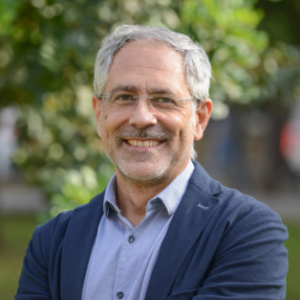
He received his undergraduate and Ph.D. degrees in Computer Science from Universitat Politècnica de València, Spain, in 1993 and 2002, respectively. He is a Professor in the Department of Systems Engineering and Control at the same university. With over 15 years of experience, he applies soft computing methods to engineering problems, particularly in process control and optimization. Specializing in control engineering and industrial automation, he has taught internationally in Finland, Poland, Ecuador, and Germany.
Mechanical Engineer, specialized in Thermofluids (Thermodynamics, Fluid Mechanics, Combustion, and Heat transfer) field from ESPOL university in Ecuador, with a Master of Science on Project Management for Environmental and Energy Engineering from Ecole des Mines de Nantes, France, and in possession of a Doctorate in Environmental Sciences and Technologies from University of Coruna in Spain. Three years of Industrial work experience, and eight years as university professor at local universities of Guayaquil, Ecuador. Researcher since 2018, with 32 articles (12 journal papers) published, 17 of them as first author. His research areas are Circular Economy, Waste Management, Structural Equation modeling, Psychographic theories and Behavior, Waste-to-Energy, Sociodemographic Family Analysis, Partial-least-square regression and ordinary least square regression, Lifecycle Assessment, Carbon footprint, and product-as-a-service. His doctoral research subject was the design of Circular Design models for solid and liquid waste in the city of Guayaquil, Ecuador. He is in a post-doctorate in the Laboratory G-Scop from the Polytechnic Institute of Grenoble, France, on the design of design method for product-as-a-service offers for electrical and electronic equipment as part of an ERA-MIN project entitled: “Scaling up a Circular Economy Business Model by new design, Leaner Remanufacturing, and Automated Material Recycling Technologies”.
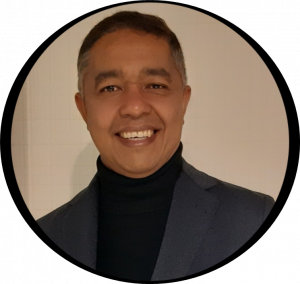
He is a Fisheries Engineer graduated from the Universidad del Magdalena, in Santa Martha, Colombia with a master’s degree in Applied Statistics from the Universidad del Norte in Barranquilla, Colombia. PhD with Cum Laude thesis in Applied Multivariate Statistics from the University of Salamanca, Spain. His field of interest is in Marine and Coastal Research.
Ph.D. in Earth Sciences in 2019 from the University Grenoble Alpes (UGA). He specializes in Earthquake Sources and Active Seismology, mainly focus on monitoring Seismogenic Faults and Active Volcanoes. He applies and develops new machine learning techniques to unveil the physical processes behind earthquakes. He actively contributes to the development of programming codes and tools in Inversion Theory Applied to Geophysical problems. His research enhances the understanding of earthquake sources and how this better understanding can effectively estimate seismic hazards in densely populated and vulnerable areas.
Since 2022, Dr. Hugo S. Sánchez-Reyes has worked as a researcher at the Institut de Recherche pour le Développement (IRD), specifically at the Institut des Sciences de la Terre (ISTerre), affiliated with the University of Grenoble Alpes in France. Currently, he is responsible for two distinct projects: 1) Improving the Peruvian Seismic Catalog using Artificial Intelligence (IPSCAI) and 2) Conducting a Detailed Study of Active Seismicity in the Colca Valley (EFASAP, an acronym in French). These projects are carried out as part of an international collaboration between UGA-IRD and the Instituto Geofísico del Perú (IGP). In addition to his research, Dr. Sánchez-Reyes actively supervises master’s and Ph.D. students and collaborates as a peer reviewer for high-impact international journals, including the Journal of Geophysical Research (JGR) and Geophysical Journal International (GJI).
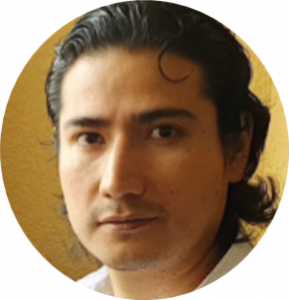
Electronics and Telecommunications Engineer, he was the best graduate from ESPE in 2009. Master and PhD in Electrical Engineering in Telecommunications and Telematics at the University of Campinas (UNICAMP), Brazil. He has several scientific publications in high-impact journals and international conferences. Director of research projects in wireless mobile communications and 5G mobile networks.
He is a senior member of the IEEE in the United States, a reviewer of important scientific journals from the publishers IEEE, Elsevier, Springer, John Wiley, and Sons, among others. He is currently a teacher-researcher in the Telecommunications Engineering program at the University of Las Américas (UDLA).

Graduate in Physics, with studies begun at the University of Buenos Aires and continued at the Dr. Balseiro Physics Institute in Bariloche – Río Negro. He has a master’s degree in Environmental Technology from Imperial College of Medicine. He is a researcher and professor, specialized in Resource and Technology Assessment, Identification of obstacles and opportunities for the adoption of Renewable Energy, as well as in the formulation of recommendations and guidelines for Environmental and Energy Policies.
Industrial Engineer graduated from the Central Marta Abreu de las Villas University, with a master’s degree in computer science for Environmental Management in a joint program between the Central Marta Abreu de las Villas University and the Carl Von Ossietzky University of Germany. In 2017 he graduated as a Doctor of Science. He has experience in Evaluation of Corporate Environmental Performance, Corporate Sustainability and Measurement Systems based on multi-Criteria Tools. Provides Information technology support for the Evaluation of Environmental Performance and Business Sustainability.
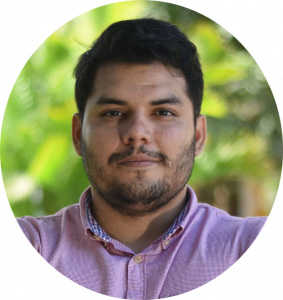
He is a Mechanical Engineer graduated from the Escuela Superior Politécnica del Litoral, with a master’s degree in Materials and Manufacturing Processes from the State University of Campinas. He has experience in Subtractive Manufacturing projects, CAD-CAM Systems, Reverse Engineering, and 3D Printing. Mainly works on design, Optimization of Strategies for Manufacturing parts with Complex Geometry and Technological Development for cutting tools.
Born at the highlands of the Ecuadorian Andes. Currently a postdoctoral researcher, formerly a teaching assistant, environmental technician, librarian. Strongly driven by the widespread and incompatible binding between rich nature and large socioeconomic inequalities. Devote his work to the design of Bioprocesses as one of the pillars of Sustainable Development.
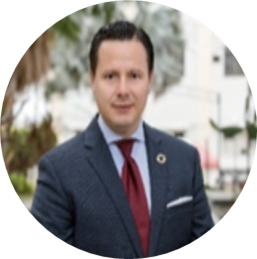
Engineer in Agricultural Sciences and Natural Resources Management at Earth University – Costa Rica with a master’s degree in environmental economics at Michigan University – USA., and a Ph.D. in Public Policy and Administration at Ohio State University – United States. Ph. D. Ortega is Co-Chair of the Expert Panel of the Voluntary Carbon Market Integrity Council, and the Member of the United Nations Council of Experts on Public Administration and UNPRME Working Group on Sustainable Finance.
He is a former Minister of the Environment and was a member of the Council of the Global Environment Facility, the Executive Board of the United Nations Clean Development Mechanism, and the Advisory Council of the Green Bond Principles of the International Capital Market Association. He is the coordinator of the Sustainable Finance Initiative and the Carbon Platform of Ecuador and author of more than twenty high-impact academic publications.
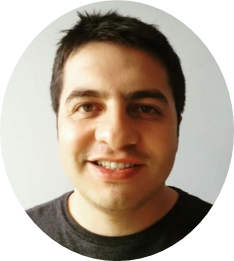
He is an Electronics and Telecommunications Engineer, he did his master’s degree at Unicamp Brazil, he worked as a teacher at UTPL, in Signal Processing and Development of Embedded Systems area, he worked as a full-time teacher at UDLA-Quito, in the Signal Processing, and Communications Systems area. He is currently pursuing his doctorate studies in Electrical Engineering and Communications at Unicamp.
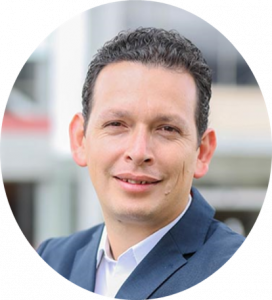
Electronics and Telecommunications Engineer from Universidad Técnica Particular de Loja, in (2016) and years later, he obtained a master’s degree in Electromechanics (2017). He is currently, a Professor at UTPL-Ecuador. He is also the Director of a Control, Automation, and Intelligent Systems Research Group, and President of the IEEE Ecuador Robotics and Automation Society. His research areas focus on Automatic Control, Instrumentation, Electrical Circuits and Electronic Systems.
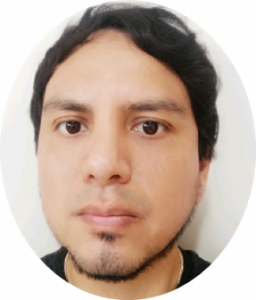
Dr. Bremnen Véliz is currently a professor at the Faculty of Systems and Telecommunications at the Santa Elena Peninsula State University. He also served as a professor at the Salesiana Polytechnic University, in the Department of Electronic Engineering of Guayaquil. In 2007 he graduated as an Electronics and Telecommunications Engineer from the Escuela Superior Politécnica del Litoral (ESPOL). He received his PhD in Electronic Engineering in 2020 from the Polytechnic University of Catalonia (UPC), Spain.
During his doctorate he collaborated with the UPC and the European Space Agency (ESA) on the Electrosprayed Metallic Nanoparticles for Energy Storage project. His fields of interest are Microsystems, Micro and Nanotechnologies, MIM capacitors, humidity sensors and devices based on Colloidal Nanoparticles.
Networks:
Academic researcher with a Ph.D. in Materials Science from the University of Grenoble Alpes and a double diploma in Textile and Fibers Engineering at the University of Haut Alsace in France. With expertise in Materials Science, Khaoula specializes in a wide range of areas, including fibers, polymers, composites, and biobased materials, all while maintaining a strong passion for the transformative potential of 3D printing technology. Currently, Khaoula serves as a Project Manager, leading efforts to harness the potential of an Innovative Bio – composite Technology. This patented technology represents a Groundbreaking approach in the industrial world, and Khaoula is committed to driving its valorization and ensuring its successful integration into various Industrial Applications. Her goal is to leverage her extensive background and skills to drive innovation and sustainability, contributing to meaningful advancements in materials and processes.
Benigno has a Bachelor’s Degree in Physics with a Specialty in Electronics and a Ph,D, in Environmental Sciences. Full time professor at the Department of Industrial Engineering at the University of La Coruña (UDC-Spain), and teaches in several Master’s and Degrees at the UDC. Highlighted teaching expertise in Energy Cooperation and Sustainability. Currently assigned to the Sustainable Management of Water and Soil Resources (AQUATERRA) group, in Automation, and Regulation and Control.
Electromechanical engineer graduated from the National Technological University, Mendoza Regional Faculty. Has a diploma in Hydrogen Processes and Economics. He is currently pursuing a PhD in Engineering, Specializing in Regional Energy Policy Strategies and Climate Change Mitigation Assessment in the Management of Distributed Generation and Storage of Electrical Energy from Renewable Sources. Seeks to expand his knowledge in Energy Policy and Economics, providing recommendations and applying technological solutions to solve problems and improve the capabilities of energy projects.
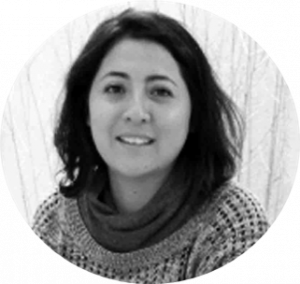
PhD candidate – Program Energy Systems Planning – Universidad Estadual de Campinas, Brazil. Master in Ecodesign and Energy Efficiency in Buildings – Universidad de Zaragoza, Spain. 2010/2012. Architect – Universidad Católica de Cuenca, Ecuador. 1999/2005.
Researcher and Advisor of Habitability, Well-Being and Health in Indoor Environments, Indoor Air Quality, Sustainability, Bioclimatic Strategies, and Efficiency Energy in Residences.
Jorge Charco Aguirre is a Computer Systems Engineer from the University of Guayaquil, he has a Master’s degree in Artificial Intelligence, Shape Recognition and Digital Image, from the Polytechnic University of Valencia, Spain, PH. D. in Applied Computational Sciences, at the Escuela Superior Politécnica del Litoral, Ecuador.
He has more than 8 years of professional experience in the public sector as a software developer, network and communication infrastructure, and as area director of Information Technology.
He is a professor at the Faculty of Mathematical Sciences and Physics of the University of Guayaquil. He is a researcher accredited by Senescyt and author of several scientific articles and impact book chapters. He is part of the researchers at the Center for Research, Development and Innovation of Computational Systems (CIDIS) of ESPOL, of the Ibero-American Program of Sciences and Technology for Development (CYTED).
Alfonso Aníbal Guijarro Rodríguez is a Computer Engineer from the Escuela Superior Politécnica del Litoral, among his postgraduate studies there is a Master’s Degree in Teaching and Management in Higher Education from the University of Guayaquil in Ecuador, a Master’s Degree in Computational Modeling in Engineering from the University of Cádiz – Spain. He is a PhD candidate in Pedagogical Sciences from the Center for Studies for Educational Quality and Scientific Research (CECEIC). He is a Professor at the University of Guayaquil, with 23 years of teaching experience in the Computer Systems and Software Engineering Career, Research Professor, and belongs to the Artificial Intelligence and Information Technologies Research Group of the Faculty of Mathematical and Physical Sciences. from the University of Guayaquil, has tutored final year projects at the undergraduate level and postgraduate theses, has several book publications with national and foreign publishers, scientific articles indexed in magazines of regional scope and global impact and has participated as speakers in national and international events.
My name is Guillermo O. Pizarro-Vasquez, I am the President of the Computational Intelligence Society in IEEE Ecuador Section (IEEE – CIS Ecuador), Research Professor at the Salesiana Polytechnic University (UPS – GYE) and I belong to the Engineering Research Group of Software and Knowledge Engineering (GIISIC).
Computer Systems Engineer from the University of Guayaquil, Master in computational modeling from the University of Cádiz, General Manager of Academic Personnel from the Faculty of Industrial Engineering of the University of Guayaquil. Work carried out in Gamification in the classroom, Educational Robotics, Image Analysis.
Networks:
Y. González graduated from the Universidad Central de Venezuela (2001). He received his PhD from the Universidad Central de Venezuela (2007). Currently, he is a Professor of Mechanical Engineering and Materials Science at University of Guayaquil (Ecuador). His research is oriented towards mechanical simulation of the bone-healing process and bone remodelling. Other research interest includes design of biomedical devices and more recently, econometric models techniques and applications.
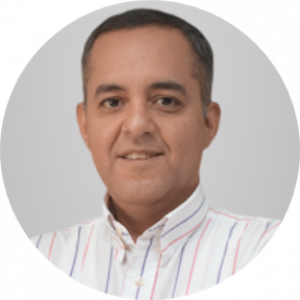

His research interests span a broad spectrum within image processing and analysis and vision applied to mobile robotics. Dr. Vintimilla has been involved in several topics, including: multispectral image processing and analysis; tracking and analysis of human movement from video sequences; Image representation and processing using adaptive triangular meshes.


Tanny Chavez received her degree in Electronics and Telecommunications Engineering from the Escuela Superior Politécnica del Litoral, Guayaquil, Ecuador in 2015, and completed her master’s and doctoral studies in Electrical Engineering at the University of Arkansas, Fayetteville AR, USA, in 2018 and 2021. , respectively. She is currently working as a Research Scientist at Lawrence Berkeley National Laboratory, Berkeley CA, USA.
Research teacher in Energy Techniques, Project Management, Applied Physics and Physics Didactics. Performance in the industry: in electrical maintenance of industrial generators. Interdisciplinary professional, responsible, good management of human relationships and with humanistic potential. Studies carried out at the Universidad Católica Santiago de Guayaquil, Universidad de Guayaquil, ESPOL, Universidad Autónoma de Tamaulipas and Universidad Da Coruña.
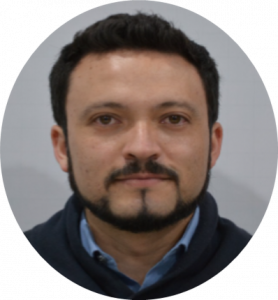

He is a Chemical Engineer graduated from the National Polytechnic School, with a Master’s degree in Industrial Engineering from Northeastern University, Boston, United States. In addition, he has a Doctorate in Industrial Engineering from the University of Valladolid, Spain. He with interest in energy futures given the prospect of oil availability.


Dr. Chen Qinqin is an environmental geographer with specific interests in transboundary pollution and regional sustainable development. Her research aims to comprehend the impacts of intensified anthropogenic activities and various socio-economic factors on environmental quality and ecosystem health at local, regional, and global scales. She specializes in the study of toxic trace metals, nutrients, greenhouse gases, and emerging pollutants like (micro)plastics. Over the course of her career, she has conducted fieldwork and played a leadership role in research projects in China, Singapore, the Philippines, and Kenya.
He is an Industrial Engineer graduated from the Escuela Superior Politécnica del Litoral, with a Master’s degree in Renewable Energies from the University of Zaragoza and a Master’s degree in Energy Systems Planning from the State University of Campinas, where he concluded his Doctoral studies. He has experience in energy efficiency projects, energy planning, bioeconomy and waste utilization; working mainly developing input-output models, general equilibrium models and LEAP model.
Networks:


He obtained his degree in Electronics and Telecommunications Engineering from the Army Polytechnic School – ESPE. Master and Doctor in Electrical Engineering with emphasis in the areas of Telecommunications and Telematics and Computer Engineering respectively. Both degrees obtained at the State University of Campinas – Brazil. He is currently working on the development of Assistive Technologies specifically in computational tools for people with visual disabilities. He has been a full-time professor in the Department of Energy Sciences and Mechanics of the University of the Armed Forces since 2014.
Patricia L. Suarez graduated as a Computer Systems Engineer in 2002, obtained a Master’s degree in Management Information Systems in 2008 from ESPOL, and the Ph.D. in applied computer science in 2020 at ESPOL. She received the Best Work Award at the CVPR-PBVS workshop in 2017. She has 12 years of experience in the professional field of computing. Since 2006, Patricia has actively participated as a professor at different universities in Ecuador. Additionally, since 2015 she is a researcher in the field of multispectral image processing and representation at the CIDIS research laboratory of ESPOL, Guayaquil, Ecuador. She has been a member of IEEE since 2016 and she has participated on several international research projects (Meta, US Air Force Office of Scientific Research (AFOSR)).


Paola Gabriela Vinueza Naranjo, Systems and Computer Engineer from the National University of Chimborazo (Ecuador). Doctor in Telecommunications from the Università La Sapienza di Roma (Italy). Professor/Researcher at the National University of Chimborazo (Ecuador). Academic Editor. IEEE-UNACH council.
She currently works as a research professor at the National University of Chimborazo (Faculty of Engineering – School of Information and Communication Technologies). She received her Ph.D. in Telecommunications at the University of Rome” La Sapienza”, Rome, Italy, (March 2015 – February 2018). She is the author/co-author of several peer-reviewed articles, publications in reputed conferences and journals. She has been a participant in 3 international projects related to Fog-Cloud Computing and one national project. Her current research focuses on Fog Computing and Industry 4.0. She is a member of the IEEE Computer Society.
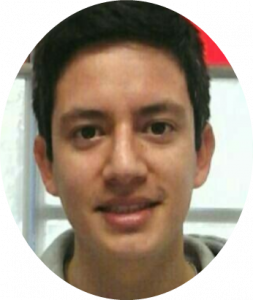

Electrical engineer esp. electronics and industrial automation, Master in automation and industrial computing.
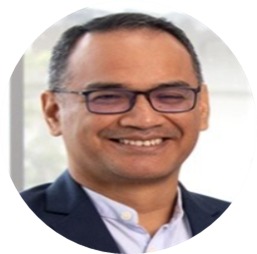

Doctor in Statistics and Optimization with Cum Laude mention, Department of Statistics and Applied Operational Research and Quality, Polytechnic University of Valencia. Spain, Master in productivity and quality management. Institute of Mathematical Sciences, Escuela Superior Politécnica Del Litoral, Ecuador. Computer statistics engineer. Institute of Mathematical Sciences, Escuela Superior Politécnica Del Litoral, Ecuador.
Full-time professor in the Department of Energy of the Bariloche Foundation, in addition to being the Director of the Master’s Degree in Economics and Energy and Environmental Policies at the National University of Comahue. He has a background in petroleum engineering and multiple master’s degrees and specializations in energy and environmental economics and hydrocarbon management. He specializes in research at the Bariloche Foundation, as well as in consulting and teaching at numerous international institutions and organizations in several countries.


She obtained her degree in Electronics and Telecommunications Engineering from the University of the Armed Forces (ESPE), in 2011, in Quito – Ecuador. Later, she worked as a radio spectrum management analyst at the National Telecommunications Secretariat (SENATEL), currently (ARCOTEL). Subsequently, she obtained her Master’s degree and Doctorate in Electrical Engineering in the Area of Telecommunications and Telematics at the State University of Campinas (UNICAMP) in Campinas – Brazil, in 2014 and 2018, respectively. Currently, she is a professor at the University of Las Américas (UDLA) in the Faculty of Engineering and Applied Sciences in the Telecommunications Engineering Career. She has several scientific articles published in high-impact journals and at International Conferences. Within her areas of interest are opportunistic transmissions, cooperative networks, error correcting codes, wireless communications systems, optical communications, diversity techniques, multiple access techniques, stochastic processes and multi-user detection techniques.


Ph.D. in Mechanical Engineering (Robotics and Mechatronics) Nabih Pico received his Ph.D. in mechanical engineering in 2022 from Sungkyunkwan University at the Robotics and Intelligent System Engineering Laboratory (RISE Lab).
Currently, he is working as a postdoctoral researcher at RISE Lab. He collaborated with Coga Robotics, a Korean company that provides AI-based autonomous driving solutions. Now he is collaborating with VESTEK, the Smart Factory Maker, a Korean company specializing in the semiconductor business and general industrial automation based on automation and robot technology.
His research interests include autonomous mobile robots, SLAM, control, terrain recognition, deep learning, and deep reinforcement learning.
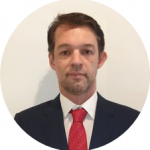

Full University Professor at the University of Jaén with a doctorate in Computer Engineering, he is currently a researcher in the SINAI research group (Intelligent Information Access Systems) and Deputy Director of the Higher Polytechnic School of Jaén. He has a large number of international publications, presentations at conferences and participation in research projects.
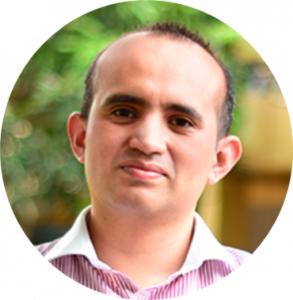

Graduated in Mechanical Engineering from the National Polytechnic School with a Doctorate in Mechanical Engineering from the Polytechnic University of Madrid, with interests in the integration of various engineering fields such as; artificial intelligence, neural networks, computer vision, collaborative robotics, product lifecycle management and industry 4.0, to improve products, mechanisms and systems in industry, and the research and development of engineering solutions through the use of CAD/CAM / CAE and experimental validation, pushing the boundaries of knowledge learning new skills in the process.
Industrial engineer, with a Master’s degree in business administration and currently pursuing a Doctorate in Multivariate Statistics, I am a professional who works as a team in order to achieve the goals proposed by the organization, contributing with my knowledge to optimize resources, I have worked in the automotive sector leading work groups, achieving the organization’s objectives.


Lorena León Quiñonez studied Computer Science Engineering at the Private Technical University of Loja (UTPL). Master in Computer Engineering from the Faculty of Electrical and Computer Engineering of the State University of Campinas (UNICAMP), rated as the best university in Latin America, also during that period, and under the supervision of Prof. Dr. Luiz Cesar Martini, he worked as a researcher in the computer laboratory, in different research areas for developing tools for people with visual disabilities, developing software to support the study of mathematics. She is currently pursuing her doctoral studies at the aforementioned university, in the Communications Laboratory (LARCOM), under the supervision of Prof. Dr. Leonardo Mendes, researching and developing software for technological solutions and smart cities in the education sector
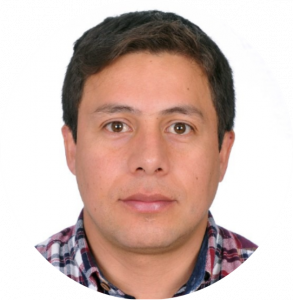

PhD in “Science and technology of complex systems” obtained at the University of Calabria, Engineer in Electronics and Telecommunications obtained at the Technical University of Loja. Professor of the Telecommunications career at the National University of Chimborazo. Technological volunteer at the Institute of Robotics for Dependency in Barcelona Spain developing interactive applications for the humanoid robots Pepper and Nao from Softbank robotics. Expert in areas of microcontroller programming, FPGA, wireless networks, remote laboratories, electronic systems for people with disabilities, among others.


Professional in Mathematics with an emphasis in Statistics, Master in Tropical Agroforestry, Master’s Degree in Advanced Analysis of Multivariate Data and Big Data, with a Doctorate in Applied Multivariate Statistics. He specializes in Statistical Modeling, Statistical Analysis, Applied Statistics, Data Analysis, Multivariate Statistics, Multivariate Data Analysis, Multivariate Analysis, Multivariate Statistical Analysis.
Dr. Jorge Gomez Ponce earned his M.Sc. and Ph.D. from USC, sponsored by the U.S. Department of State and the Ecuadorian Government under the Foreign Fulbright Ecuador SENESCYT Program. He is a Postdoctoral Research Fellow at USC. He has industry and academia experience, where his work has led to multiple high-quality publications and patents. His current research includes the design of channel sounders, measurements, and modeling for various wireless communication bands, including THz, mmWave, and Wi-Fi; statistical and ray-tracer modeling for wireless communication channels (e.g., WI-Fi, UAV, mmWave, and THz), RF systems design and implementation with DSP/FPGA systems, estimation theory, and machine learning applied to wireless communications, and cognitive radio systems.
Javier Ramirez-Perez currently is a Visiting Research Professor at Universidad de Sao Paulo-Brazil in the Institute de Fisica. Former Research Professor at UPB in the Center of Phytochemistry. Faculty in the Department of Chemistry at Kent State University at Stark. Prometheus Research Professor at CIBE-ESPOL, UTPL, Yahcay Tech in Ecuador. He does research in Environmental Biotechnology, Environmental Chemistry, Green Chemistry and Nanotechnology. Their current project is ‘microbiological and physicochemical of cultural heritage biodegradation and treatment application. Biopolymers nanostructured for organic solar cells and fuel cells, biofuels, and algal photo-bioreactors and biogas production, and biofertilizers- biofungicides by anaerobic and aerobic bioprocess.
Electronics Engineer from the Higher Polytechnic School of Chimborazo, with a master’s degree in Robotics and Automation from the Carlos III University of Madrid, Doctoral candidate in Robotic Automation and Industrial Informatics from the Polytechnic University of Valencia, Spain. She is a university professor, research projects, publications in high-impact journals and participation in International Congresses.


Doctor Within the Doctoral Program in Manufacturing, Materials and Environmental Engineering, Master’s Degree in Computational Modeling in Engineering, Professor-Researcher (Faculty of Mathematical Sciences and Physics – Artificial Intelligence and Information Technologies Research Group).
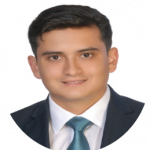

Carlos Zurita is an economist who recently earned his Ph.D. in Agricultural Economics from Purdue University in the United States, financing part of his doctoral studies with a Fulbright scholarship. Currently, Carlos is undergoing academic training as a Research Assistant Professor at North Dakota State University (NDSU). He also holds a Master’s degree in Economics from the University of New South Wales in Sydney, Australia. His scientific research focuses on the gravity model of trade, the WTO Trade Facilitation Agreement, Global Value Chains in agribusiness, and policies related to the import and export of genetically modified agricultural products. Carlos’ passion for research is fueled by his curiosity about free trade, transportation costs for moving goods across borders, and how countries commit to multilateral agreements. With substantial professional experience in trade-related public institutions in Ecuador, including the National Customs Service and the Ministry of Foreign Trade, Carlos brings a valuable real-world perspective to his work.
Daniel Humberto Plúa Morán, currently works at the Salesian Polytechnic University of Ecuador as a Teacher of Computer Management, Project Management, Information Systems, Databases, Artificial Intelligence, programming.
– Head of the computer science degree area
– Member of the commission for the creation of the Data Science Engineering career
– Member of the commission for the creation of the Multimedia Design career
– Director of technical graduation projects
– In charge of the job board in the liaison area.
Lenin E. Cevallos-Robalino is an associate professor of Mechatronics Engineering. He has an extensive academic background that includes the Bachelor’s Degree in Industrial Engineering (2009), the Master’s Degree in Nuclear Science and Technology (2014) and the Ph.D. in Sustainable, Nuclear and Renewable Energy (2019). His main research areas include Neutron Detection, Dosimetry and Spectrometry, and he has published numerous articles in high-impact international scientific journals. He is a member of the Spanish Nuclear Society (since 2017). In addition, he has been a professor and researcher at the Salesian Polytechnic University of Guayaquil, currently being responsible for Research Coordination, and a member of the technical management committee of the International Conference on Science, Technology and Innovation for Society – CITIS 2023. Currently
has Nine years of academic and research experience, with 14 publications in high-impact journals and two book chapters, since 2019. Has knowledge of MCNP Monte Carlo codes, shielding simulations, dosimetry and radiological protection, due to the various research and work experiences.
Doctor in University Management, Master in Business Administration and Systems Engineer. Undergraduate and Postgraduate University Teacher in public and private universities. Former teacher of Higher Technological Institutes. Referee in the editorial process of Number 33 of the Magazine of the University of Zulia, Venezuela. Member of scientific journals. Thesis and scientific articles advisor. International speaker.
Ph.D in the Automation, Robotics, and Industrial Computing program- UPV-SPAIN.
Master in Automation and Industrial Control- ESPOL-ECUADOR.
I am a full-time research professor at the Universidad Politécnica Salesiana. My main research interests are: modeling and control of multivariable systems, multi-objective evolutionary algorithms and their application to engineering, intelligent control and artificial intelligence applications. I am a reviewer of national and international scientific journals. I have participated as a speaker and evaluator in national and international scientific conferences. I am coordinator of the Control Systems and Robotics Research Group (GISCOR) at UPS-Guayaquil.
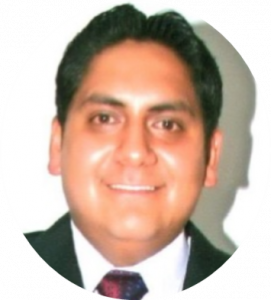

He received the B.Sc. degree in Mechanical Engineering from the National Polytechnic School (EPN), Ecuador (2012), the M.Sc. and the Ph.D. degrees in Mechanical Engineering from the University of Campinas (UNICAMP), Brazil in 2017 and 2021, respectively. In 2019, he did an internship at the University of Pennsylvania, USA, working as a research assistant. He is currently a postdoctoral associate at the University of Rochester in the department of Earth and Environmental Sciences.
Marco Salcedo holds an M.Sc. in Petroleum Science and Engineering from the University of Campinas in Brazil and a Ph.D. in Earth Science, the Universe, and the Environment from the University of Grenoble Alpes in France. He also completed a postdoctoral stay at the University of Lorraine in France. With a solid research career spanning 8 years, his expertise lies in geoscience, including signal processing, data analysis and monitoring, differential equations modeling, inverse theory, and multiphysics imaging using seismic, electromagnetic, or electrical data.
Marco’s professional background extends beyond academia. He has practical experience as a technical specialist in the Ecuadorian Amazon, which has allowed him to consolidate his industry expertise. In the academic sector, Marco is dedicated to education, teaching petrophysical modeling in the Master’s program in Petroleum Sciences at Universidad Estatal Península de Santa Elena. Additionally, he serves as a full-time occasional lecturer at the Universidad de Guayaquil, where he shares his knowledge and experience with the next generation of professionals in the field.
Master of Technology in Mechatronics and Robotics– 9.07/10.0 GPA – Indian Institute of Engineering Science and Technology, Shibpur, India. June 2019 – June 2021. Research Assistant at the Robotics and Automation Department of CSIR-CMERI from 2020 to 2021.
PhD Student – Indian Institute of Technology, Delhi, India and Research Scholar at Indian Institute of Technology (IIT), Delhi. (currently)
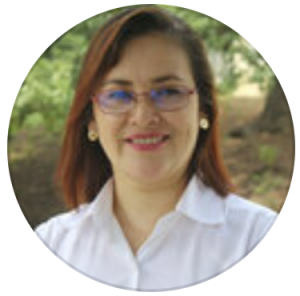

Computer Statistics Engineer, Master’s Degree in Advanced Multivariate Data Analysis and PhD within the Doctoral Program in Applied Multivariate Statistics. She currently works at ESPOL; She collaborates at the Faculty of Life Sciences (FCV), the Faculty of Natural Sciences and Mathematics (FCNM) and the Center for Statistical Studies and Research (CEIE). Mariela researches multidirectional statistical methods applied in Oceanography-Meteorology, Biology and Nutrition and Dietetics. In addition, she Time Series, Geostatistics and Biostatistics.
Mechanical Engineer graduated from ESPOL. Master in Energy Systems Planning at UNICAMP (Campinas – Brazil). Expert in energy efficiency policies and regulations focused on the residential sector and air conditioning equipment. EDGE expert for building sustainability certification.
Professional career: Planning and supervision of industrial maintenance activities at PRONACA. Consulting on energy sustainability of residential buildings for ECLAC and Municipal Public Housing Company of Guayaquil. Analyst of energy efficiency projects for ESPOL and IIGE.
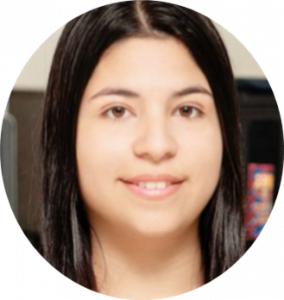

She is a Mechanical Engineer from the Escuela Superior Politécnica del Litoral Phd.(c) Built environment and construction engineering from the Politecnico di Milano, member of the Center for Renewable and Alternative Energies of ESPOL. She specializes in Building Energy Modeling and Energy Efficiency in Buildings.


Degree in electrical engineering with a master’s degree in electrical engineering and a master’s degree in economics. He obtained his doctorate in Energy Planning from the State University of Campinas. He is currently a Professor-Researcher at the University of La Salle, Bogotá-Colombia, and pursuing a postdoctoral degree at Aalborg University. He is a specialist in energy economics, energy planning and energy quality.
The use and application of automation technologies with the support of Artificial Intelligence “AI” in the management of automation processes and Industrial processes, optimizes decision making, which means simplification of processes, liberation of resources and improvement in operational effectiveness, over a variety of applications. In this sense, this thematic branch of research seeks to achieve a set of innovative contributions attached to development and linked to Robotics and Artificial Intelligence within an industrial production environment.
Cutting-edge technology alongside an innovative mindset approach can drive the automatization of supply chain operations, resulting in streamlined workflows, human error reduction, and better product quality to provide goods and services. Human-machine collaborative systems are an example of how machines can monitor self-performance and predict the future behavior of processes they support. The fusion of digital technology and artificial intelligence (AI) can also transform products and services into affordable and sustainable options for underserved or traditionally non-marketable consumers, considering the product life cycle and adopting green technologies to minimize operating expenses, amplifying employee productivity, and profit margins. In this context, we outline potential topics where your manuscript may fit in:
“Expose research advances that promote a technological revolution in agribusiness considering environmental, social and economic factors that promote a greater increase in the profitability of the agroindustrial sector in a sustainable and inclusive way. As well as present advances in relation to productivity, technology “, regulations and product traceability in the agribusiness sector. Identify the roles of the different actors involved in agribusiness in such a way that they help generate long-term strategies and policies for the sector.”
A Technological Application uses the technology to solve specific problems or perform concrete tasks in the industry. The technological trends that are transforming the industry are the following:
• Hypersensorization of assets with the help of IoT Systems using sensors and RFID systems
• Big Data through the collection of data from various sources -sensors with IoT, ERP, CRM-
• Artificial Intelligence to analyze data through the machine learning,
• Predictive Analytics using the extraction of historical data interprets future behavior and estimates results, providing strategic information for the automation of industrial processes such as supply planning, manufacturing, purchasing, among others.
• Hyperconnectivity through the services provided by Cloud Computing such as IaaS, PaaS and SaaS without the need to invest heavily in own infrastructure or own systems.
Una aplicación tecnológica utiliza la tecnología para resolver problemas específicos o realizar tareas concretas en la industria. Las tendencias tecnológicas que están transformando la Industria son los siguientes:
• Hipersensorización de activos con la ayuda de Sistemas IoT mediante el empleo de sensores y sistemas RFID
• Big Data a través de la recopilación de datos de diversas fuentes -sensores con IoT, ERP, CRM-
• Inteligencia Artificial para analizar los datos mediante el aprendizaje automático,
• Analítica Predictiva mediante la extracción de datos históricos interpreta el comportamiento futuro y estima resultados proporcionando información estratégica para la automatización de los procesos industriales tales como planificación de suministros, fabricación, compras, entre otros.
• Hiperconectividad a través de los servicios proporcionados por la Computación en la nube como IaaS, PaaS y SaaS sin necesidad de invertir grandes en infraestructura propia o en sistemas propios.
the theme or dimension on “Implications of Sustainability in the Industry” is poised to deliver a transformative platform for stakeholders to delve into the intricate relationship between sustainability and industry. By assembling a diverse cohort of global thought leaders, policymakers, industry experts, and academics, the conference aims to yield tangible outcomes. Anticipated results include illuminating discussions on cutting-edge sustainable practices, fostering cross-industry collaborations, and unveiling the financial implications of sustainable initiatives. Participants can expect to gain valuable insights into the evolving regulatory landscape, innovative technological advancements, and the importance of supply chain sustainability. Moreover, the conference will accentuate the significance of environmental and social responsibility, encouraging attendees to adopt inclusive and diverse perspectives in their sustainability strategies. With a strong emphasis on actionable takeaways, networking opportunities, and a resounding call to action, this event endeavors to inspire concrete steps towards a more sustainable, resilient, and responsible future for industries worldwide.
The Internet of Things (IoT) and telecommunications converge in an impactful way in the modern world, acting as a bridge between technological innovation and operational improvement. Providing the essential infrastructure to connect countless devices, telecommunications networks are the backbone that allows IoT to reach its full potential in the enterprise. When we talk about “IoT in organizational productivity,” we mean how companies can take advantage of this interconnection to drive efficiencies, optimize processes and improve decision making. Telecommunications play a vital role in ensuring that communication between these devices is seamless, allowing organizations to access data in real time and react quickly to market demands. Thus, the fusion of IoT with telecommunications not only redefines the daily operations of companies, but also ushers in an era of improved productivity and efficiency at unprecedented levels.
Industrial Robotics is emerging as an essential field today, playing a fundamental role in improving efficiency, productivity and safety in manufacturing environments. Its importance lies in its ability to automate repetitive and dangerous tasks, while boosting quality and precision in production. Within the framework of the CIIA 2024 scientific congress, Industrial Robotics will generate significant results and contributions where it will address key technical challenges, such as the integration of advanced robotic systems, intelligent programming, perception and safe human-machine interaction. These advances can radically transform the industry, increasing global competitiveness, reducing production costs and promoting greater sustainability in manufacturing, which, in turn, will promote collaboration and knowledge sharing between researchers and professionals in the field.
To present the main significant challenges as we move towards the next Industrial revolution called “Industry 5.0”. This conference aims to analyze these challenges, which include the adaptation of emerging technologies such as artificial intelligence and collaborative robotics in existing production environments, the management of the complexity of the interconnection of cyber-physical systems, the need to guarantee cybersecurity in a highly digitalized environment, reconfiguring the workforce to be highly skilled and flexible, and considering ethical and regulatory issues related to the collection and use of real-time data. Furthermore, investment in infrastructure and collaboration between companies and governments to make the most of the potential of Industry 5.0 is a key on the path towards more sustainable, intelligent and efficient manufacturing, providing greener solutions in production.
“Exposure to technological advances and innovative strategies that will enable industries to reduce their carbon footprint, improve energy resource management and increase profitability through the adoption of more sustainable practices. This conference is expected to foster collaboration between experts from industry, researchers and policy makers, for the development of concrete solutions that promote a cleaner and more sustainable future in industrial production, as well as the presentation of innovative contributions that quantify energy savings, cost evaluation and environmental impact that allow the scientific community move towards a more sustainable and energy-efficient future in the field of industrial production.”
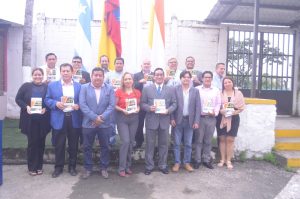

[mapplic id=”4952″]
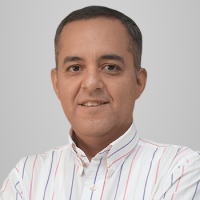

Este es un párrafo de ejemplo que contiene algún texto descriptivo.